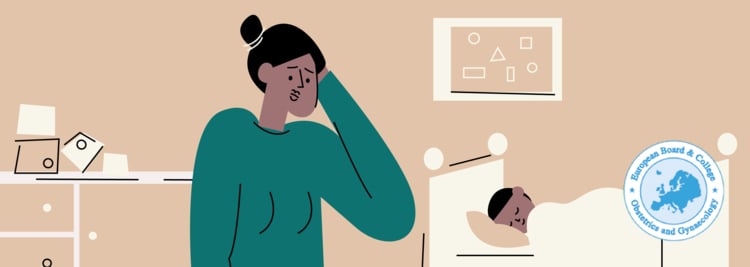Giving birth to a new human being may feel exciting. However, to some women, it may also bring long-lasting depressed mood, fatigue, or anxiety.
-
Tracking cycle
-
Getting pregnant
-
Pregnancy
-
Help Center
-
Flo for Partners
-
Anonymous Mode
-
Flo app reviews
-
Flo Premium New
-
Secret Chats New
-
Symptom Checker New
-
Your cycle
-
Health 360°
-
Getting pregnant
-
Pregnancy
-
Being a mom
-
LGBTQ+
-
Quizzes
-
Ovulation calculator
-
hCG calculator
-
Pregnancy test calculator
-
Menstrual cycle calculator
-
Period calculator
-
Implantation calculator
-
Pregnancy weeks to months calculator
-
Pregnancy due date calculator
-
IVF and FET due date calculator
-
Due date calculator by ultrasound
-
Medical Affairs
-
Science & Research
-
Pass It On Project New
-
Privacy Portal
-
Press Center
-
Flo Accuracy
-
Careers
-
Contact Us
Feeling Sad After Childbirth: Is It Baby Blues or Postpartum Depression?


Every piece of content at Flo Health adheres to the highest editorial standards for language, style, and medical accuracy. To learn what we do to deliver the best health and lifestyle insights to you, check out our content review principles.

If you or someone you know is going through a difficult time, remember that there are ways to get help. Here are some support services and resources in your country.
Find out moreSudden moods swings and tearfulness are symptoms that occur in up to 85% mothers in the first few days after childbirth and are commonly known as the baby blues. In general, they are nothing to worry about.
After delivery, the levels of female hormones estrogen and progesterone drop abruptly. These hormonal changes may affect the mood causing the baby blues. In most cases, the symptoms vanish within 1-2 weeks, after hormonal levels have stabilized.
Postpartum depression is different from baby blues, more severe and lasting. Around 15% of new mothers experience it.
Unlike the baby blues, postpartum depression may occur at any time during the first year, most often in the first 4 months after the baby was born. A woman with postpartum depression needs professional help.
Postpartum depression may be triggered by one or more of the following:
– Hormonal changes. Women with postpartum depression may respond more sensibly to the hormonal changes in the postpartum period and while breastfeeding.
– Poor social support. Caring for a newborn and breastfeeding is a 24/7 job and often goes along with sleep deprivation. Mothers are in need of support from their partner, friends, relatives, or other associates. Single mothers and women with financial or housing problems are at higher risk of developing postpartum depression.
– Stressful life events. Partnership conflicts, domestic violence, and the loss of a close family member are a risk factor for depression in general. It may lead to postpartum depression as well.
How to prevent depression
Prevention starts before the baby is born and depression may develop not only after, but also during pregnancy.
Being well prepared for motherhood can be helpful to prevent postpartum depression. In antenatal classes, women have the opportunity to discuss their future motherhood, share their concerns, and endorse each other.
A new mother should have enough time to rest and should take care of having regular healthy meals.
When you’re raising a child, it’s nice to have a family or friends supporting you. They can help you with the baby and in householding tasks. They can also act as confidants. Sharing your feelings and frustrations is important for mental health.
When to call a doctor
In general, you should call a doctor if sadness, irritability, or anxiety last for more than 2 weeks and interfere with your ability to care for yourself and the child.
You may also need a doctor’s help if any of the following signs are present:
- Not being able to sleep or being tired and exhausted all the time
- Poor appetite
- Feeling even small tasks are hard to complete
- Feeling highly critical of yourself or others
- Worrying about the baby all the time
- Having thoughts of harming yourself or the baby
Bottom line
In most cases, a slight mood decline after childbirth is normal and goes away within 2 weeks. If it doesn’t and symptoms of depression persist, psychological therapy and medications prescribed by a doctor are, in general, efficient options to relieve them.
Content created in association with EBCOG, the European Board & College of Obstetrics and Gynaecology


Hey, I'm Anique
I started using Flo app to track my period and ovulation because we wanted to have a baby.


The Flo app helped me learn about my body and spot ovulation signs during our conception journey.


I vividly
remember the day
that we switched
Flo into
Pregnancy Mode — it was
such a special
moment.
Real stories, real results
Learn how the Flo app became an amazing cheerleader for us on our conception journey.

